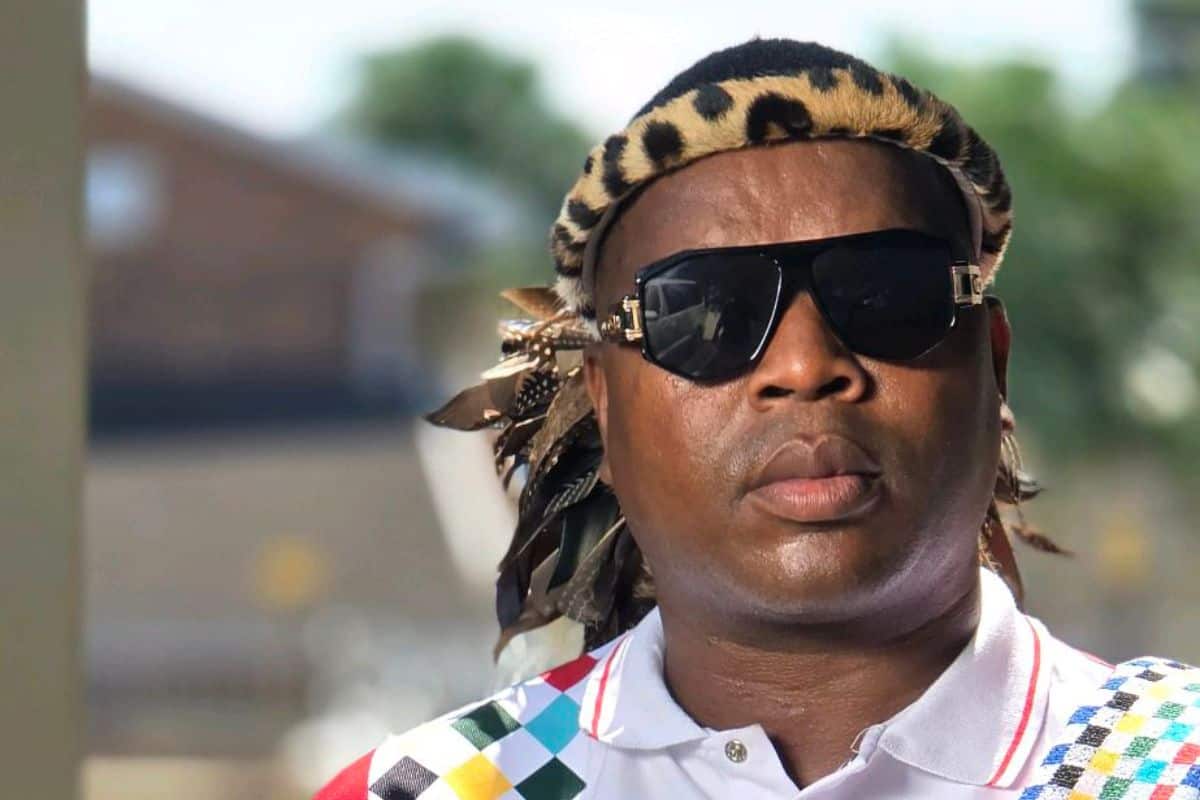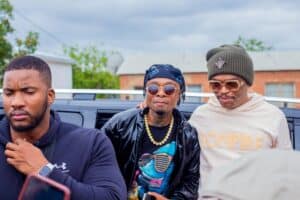The SAHRC confirmed that it had received complaints against Mchunu from members of the public.

Ngizwe Mchunu remains steadfast in his offensive comments towards the Lesbian, Gay, Bisexual, Transgender, Queer, Intersex, Asexual (LGBTQIA+) community.
This, despite being investigated by the South African Human Rights Commission (SAHRC) and being denied entry to the traditional market Kwa Mai-Mai on Sunday.
Ngizwe Mchunu addresses Somizi Mhlongo and his gay friends after being denied entry at Kwa Mai-Mai.
— Musa Khawula (@Musa_Khawula) October 5, 2025
Ngizwe Mchunu promises violence if the gays don't apologize or continue to wear the Zulu traditional regalia. pic.twitter.com/FrtKa5o7pR
“I don’t pretend, I don’t do anything. I’m straightforward,” said Mchunu in a video after being denied entry at Kwa Mai Mai.
Mchunu denied entry at Kwa Mai Mai
Mchunu went to the traditional market in downtown Joburg on Sunday after his homophobic slurs about a week ago.
Leaders of the market, known as ndunas, along with a handful of police, prevented his entry and that of his entourage to the market.
This didn’t deter him from spewing more hate towards the LGBTQIA+ community.
Leaders are focused on real issues. This moron Ngizwe is busy bothering people at the happiest spot in Jozi, Kwa Mai Mai.
Many in that group are possibly unemployed, living on pittance or can't afford to feed or an education for their kids… And gays is what the want to march… pic.twitter.com/wPslZEmw6c— Kgopolo (@PhilMphela) October 5, 2025
Targeting Somizi Mhlongo again, Mchunu said Mhlongo should leave the country, referring to homosexuals as ‘dogs’.
He accused Mhlongo of ruining the nation and took a jab at him for fathering a child despite being gay.
“Somizi, tell your dogs to apologise,” he said. He threatened to be wherever the LGBTQIA+ community is, insinuating violence against them.
[NO LAWLESSNESS WILL BE TOLERATED]
— Justice, Crime Prevention and Security (@CrimeWatch_RSA) October 5, 2025
The South African Police Service Public Order Policing Unit (POP), together with the Johannesburg Metropolitan Police Department (JMPD) and other law enforcement agencies, are closely monitoring the situation in Kwa Mai-Mai following threats… pic.twitter.com/34KHX6VP3r
Somizi did not respond to enquiries from The Citizen when contacted for comment.
“I’m declaring this statement as the president of the Bhinca nation, to say that homosexuals must f**k off. You must create your own, own your own…not in this country, not here.”
Bhinca is a Zulu subculture that stems from Zulu men who worked in the city mines during apartheid and before that, who would reminisce about rural KwaZulu-Natal and their homes through traditional music, fashion, and food at hostels that housed many men from the province.
The subculture has experienced a resurgence among young people in recent times, particularly on social media.
There are even Bhinca playlists on music streaming platforms due to its growth in pop culture, as more people become intrigued by the lifestyle.
Mchunu’ comments being assessed
The United Democratic Movement (UDM) has lodged a formal complaint with the South African Human Rights Commission (SAHRC) against Mchunu.
In his letter to the SAHRC, the UDM’s Mxolisi Makhubu argued that Mchunu’s comments incited violence against the LGBTQIA+ community.
“I write to lodge a formal complaint against Ngizwe Mchunu for hate speech, incitement to violence and ethnic mobilisation targeting members of the LGBTQIA+ community in South Africa,” Makhubu said.
The SAHRC confirmed that it had received complaints from members of the public and was registering and assessing them.
Media Statement: South African Human Rights Commission statement on alleged harassment and hate speech utterances by Mr Ngizwe Mchunu https://t.co/pbFh1uLRR6 pic.twitter.com/h4VZDpnvmR
— SAHRCommission (@SAHRCommission) October 2, 2025
“The Commission will communicate the outcome of the assessment of the complaints in due course,” it said in a statement.
Mchunu’s initial comments stem from a gay couple tying the knot. The male couple wore traditional clothes to symbolise their ethnic pride.
One of the grooms wore traditional Zulu gear, which seems to have riled up Mchunu.
Social justice activist Dr Samukezi Mrubula-Ngwenya, who specialises in, among others, LGBTQIA+ rights, said Mchunu’s rant has nothing to do with traditional attire.
“At its core, it is rooted in power, ownership, and entitlement over culture, structures that remain deeply entrenched in misogyny and patriarchy, and in the ongoing debates about what or who qualifies as a ‘real man,’” she said.
The activist said Mchunu doesn’t see gay men as ‘real’ men and that Zulu gay men do not exist.
“Such rhetoric effectively erases and invisibilises queer Zulu people who have always been part of this culture and community.”
“His suggestion that queer people deserve to be jailed echoes the dangerous positions taken by some African countries, such as Ghana, Burkina Faso, and Uganda, that have actively sought to criminalise and police queer bodies,” Mrubula-Ngwenya said.
NOW READ: Art in Transit: Gautrain collaborates with Market Theatre in bid to make art and train accessible
Support Local Journalism
Add The Citizen as a Preferred Source on Google and follow us on Google News to see more of our trusted reporting in Google News and Top Stories.








